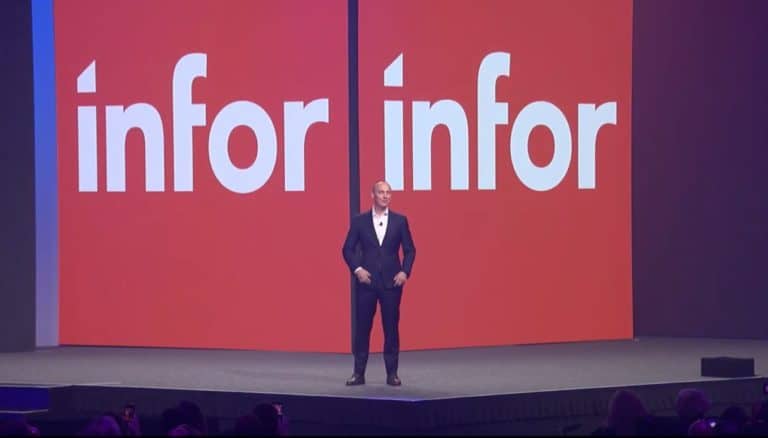Infor is one of the software vendors firmly committed to Enterprise Resource Planning (ERP) in the cloud. When companies choose for ERP in the cloud, they’re also taking a step in modernisation. Therefore, many IT administrators are moving from on-premise to cloud-based or intend to. With cloud-first ERP, Infor wants to help these companies.
For many organisations, Enterprise Resource Planning is one of their most relevant systems. It forms the basis for managing processes from production environments. For example, the automation of invoicing can be controlled by an ERP system, but the necessary supply chain management can be done through ERP software as well.
In practice, companies often still rely on legacy systems for these processes. This is because they chose to use an on-premise ERP system years ago. Because these systems have been in use for a long time, they’re fine-tuned to the wishes of the company. Business situations and processes are often unique. For this reason, applications, extensions and custom digital processes have been built for the ERP system.
If you want to profit from modern technology, cloud ERP is the right choice
However, these on-premise systems are outdated. They do offer some advantages that you can’t get with cloud ERP, like being in charge of your own data and security. But if you want to profit from modern technology, it’s usually a good idea to choose for ERP in the cloud. With this, you gain access too much more powerful tools. The performance is better, updates can be applied swiftly and regularly, and hardware costs decrease.
Software for specific industries
Infor positions itself as a vendor that can offer companies this modern ERP software. With this, it wants to help companies optimise their processes, make better use of data in their system and apply analytics and artificial intelligence (AI) to better support, among other things, automation and employees.
To realise this, Infor has created ERP packages for specific industries. In its own words, the company tries to specify as many verticals as possible. This means not using the same software for all of the manufacturing industry, but using a specific ERP-suite for a ‘subvertical’ like the automotive industry. Infor wants to ‘verticalise’ this for as many different software applications as possible, like software for HR tasks.
Infor offers a specific ERP-suite for subverticals
Infor specialises in umbrella industries like consumer industries, discrete industries, public sector, and energy & natural resources. Within these industries, the software is further customised. For example, construction, industrial productions, fashion, hospitality, tourism and health care are ‘sub-industries’.
By looking at specific verticals, the software vendor knows exactly what’s going on within the industries and how they usually operate. Think about how inventory management in the automotive sector is usually done. Because of that, the ERP system contains standard processes and features that are common for the entire vertical. Infor promises to keep making R&D investments in the vertical, to build more relevant features for specific businesses.
It has to be said that Infor isn’t the only software vendor that spends a lot of time in product development for verticals. Software vendors often specialise in specific verticals. They do this partly to speed up the implementation process. By delivering a lot of usable functionality out of the box, an ERP system can be implemented faster.
How Infor handles implementation
Many organisations still demand extensions and customisations for their ERP suite. The ERP vendor may specialise in a specific industry and customise their software for it. Still, a company may have unique workflows and processes that aren’t supported in the standard ERP package. In this case, some customisation is needed.
Infor implements ERP through the 60/30/10 approach
The people at Infor see this too, so they came up with the 60/30/10 approach. A regular implementation is made up of 60% out of the box core functionality of the ERP suite. Then, 30% of the implementation uses existing software with small customisation. The last 10% is achieved with extensions. With that 10%, the company sets itself apart from its competitors.
By offering a lot of functionality out of the box, combined with the ability to add unique add-ons, Infor has also gained appreciation from the market. The company is often praised for its relatively quick implementation time compared to some of its competitors.
Modern package leads to innovation
Moving to an Enterprise Resource Planning suite that uses the cloud is a step that many companies want to take. The modernisation allows for more flexibility and more space for innovation. It can really help automate operations and processes. It makes the work of multiple employees within the company easier.
Infor believes that a cloud-first ERP can help with this. With this, the company steps away from legacy, to switch to a modern ERP suite. A step that will benefit the company for years to come.
